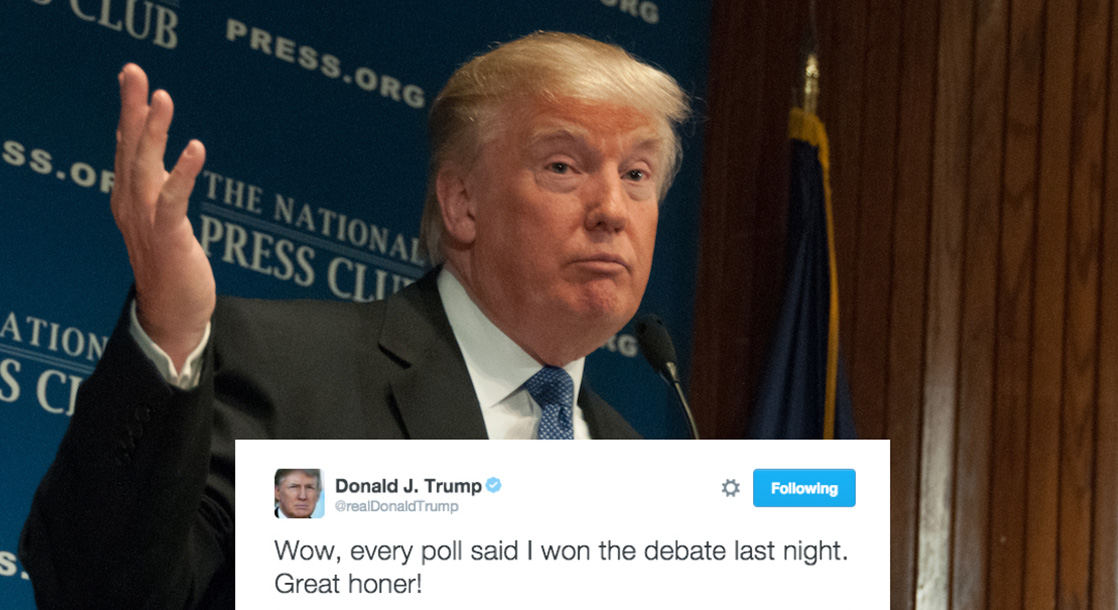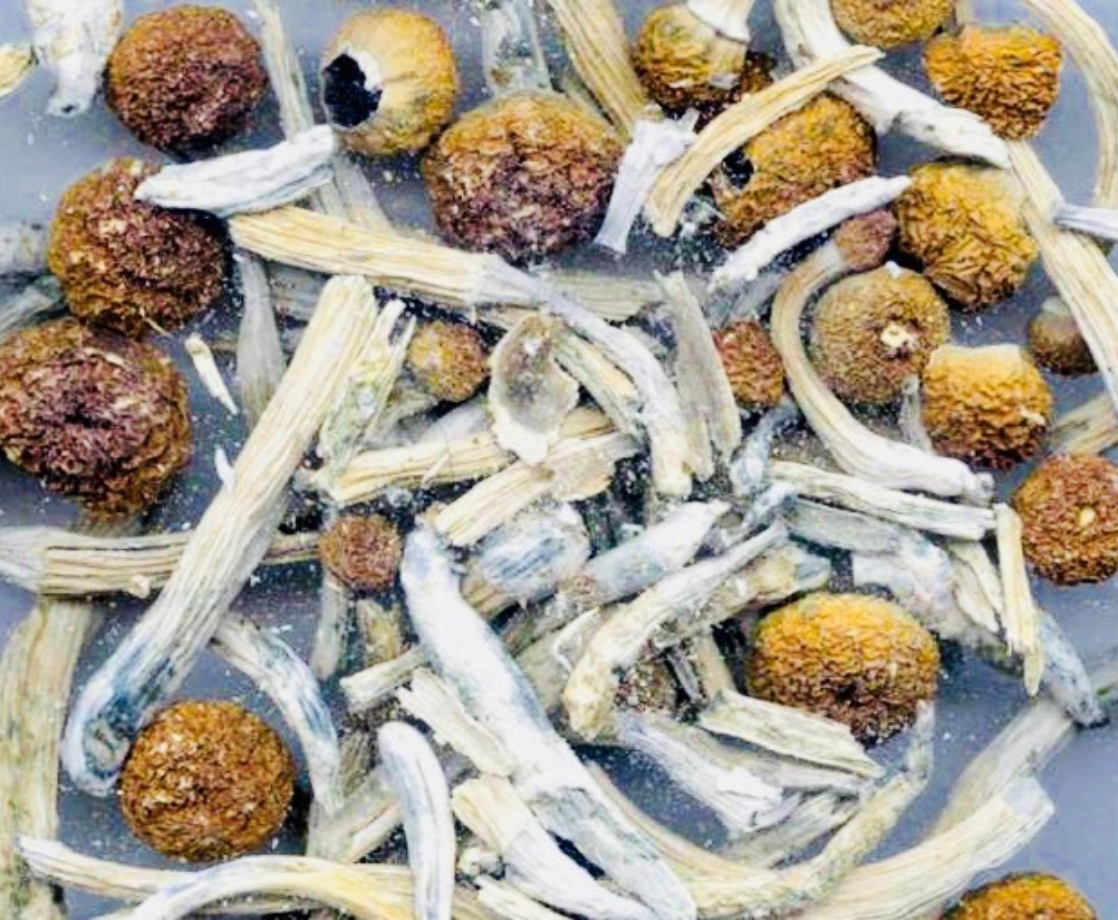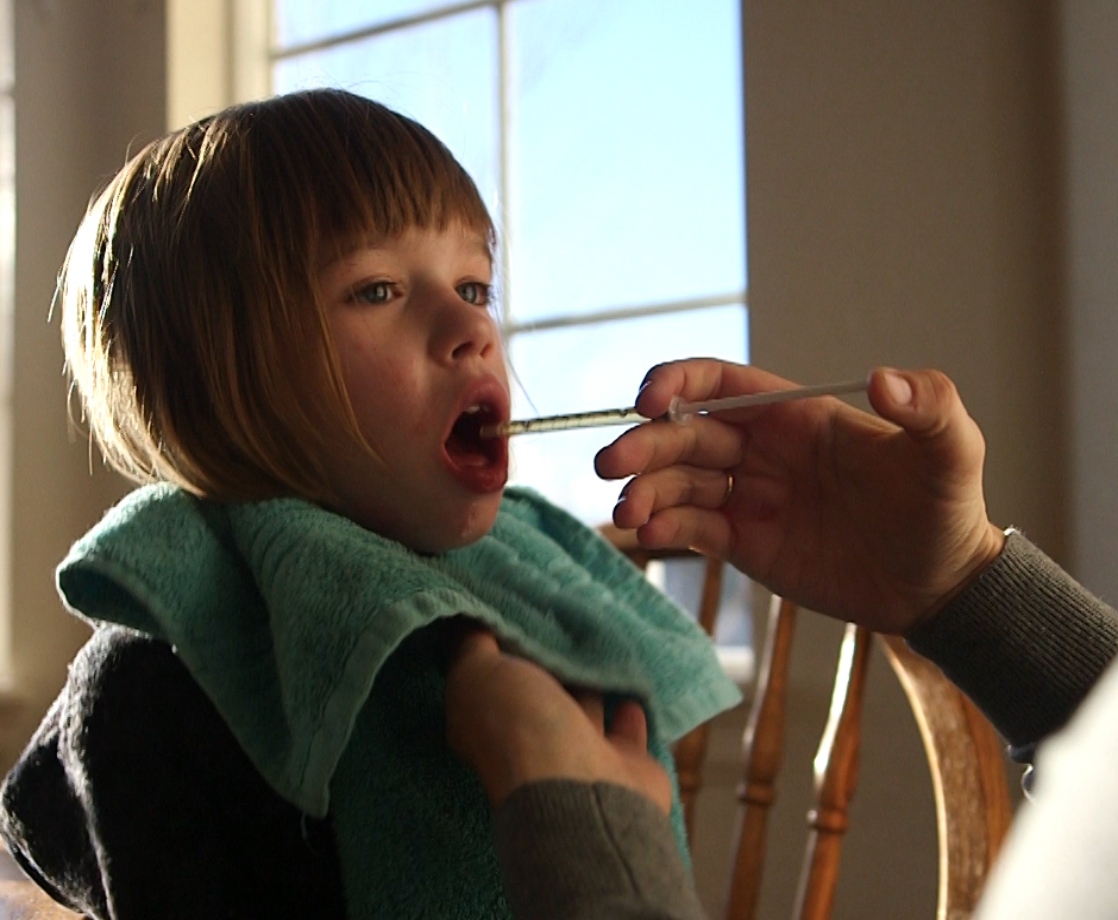There are many people and groups across our great country that can’t stand our President, and I’m sure that English teachers must be somewhere on that ever-growing list. Though less important than, say, his abuses of power or every other terrifying thing the Commander-in-Chief has done in the last week, Trump’s list of grammatical abuses is hard to go unnoticed.
As such, we wanted to take a look back at the Donald’s misspellings, malapropisms, and straight up offenses to the English language. We realize this could be a weekly column in and of itself, but ever since he accused Obama of a delusional wire “tapp” that likely never happened, we can’t get his terrible spelling out of our heads. This is for all of the bartenders, baristas, and bloggers out there with English degrees who wake up every morning, look at that diploma on the wall, and shake their heads at the fact that our nation is being led by a linguistic moron.
“Dumber”
June 25, 2015

When insulting someone’s intelligence, you really ought to spell the insult correctly.
“Shocker”
January 19, 2016

In this instance, consulting the spelling of other words would have helped Trump. This isn’t a foolproof method (as you’ll see below), but if it doesn’t rhyme with “poker,” “choker,” or (our personal favorite) “toker,” then it probably isn’t spelled “shoker.”
“Lose”
January 31, 2016

Along with “there,” “their,” and “they’re,” “loose” vs. “lose” is one of the most common homophone traps in the English language. While Cruz’s public demeanor is anything but “loose,” he did ultimately “lose” bigly.
“Misled”
February 23, 2016

Before publishing anything, read the piece through to ensure tense agreement. If you don’t, your errors may mislead the reader.
“Lightweight” “Choker”
February 26, 2016

Well, if you don’t know how to spell “shocker,” then using it to guide your spelling of “choker” isn’t going to get you very far.
“Barack”
March 2, 2016

Until the ex-President has soldiers quartered inside of him, he will not be a “barrack.”
“Paid”
March 6, 2016

Yes, “-aid” vs. “-ayed” is a tricky one: “paid” and “prayed” sound almost exactly the same. And, according to his former employees, Trump isn’t terribly familiar with either.
“Phoenix”
March 19, 2016

Trump has not updated his misspelling of the word used for the both the capital of Arizona and the immortal mythological fire bird.
“Ridiculous”
December 10, 2016
In one of few instances where Trump was kind of in the right, people outside the television industry wrongly assumed the holding onto an executive producer title on The Apprentice meant continuing work on the show. Creators and stars often keep an EP title as a vehicle for collecting royalties long after they leave a show. Admittedly, this controversy was kind of ridiculous.
“Unpresidented”
December 17, 2016

No matter how much we may wanted the current POTUS to be “unpresidented,” this is not an actual synonym for “impeached.” It’s both good grammar and good manners to double check your spelling when insulting a foreign power.
“Honored”
January 21, 2017

This now deleted tweet is a perfect illustration of the common mistake that if a letter sounds different in two different places within a word, you’ll tend to second guess yourself. Don’t make the Donald’s mistake.
“Among”
January 24, 2017

Just because a word rhymes with another word doesn’t mean they are spelled the same. While “young” as in “Donald Trump’s wives tend to be very young” makes the same sound as “among”—as in “Donald Trump’s wives are among the youngest I’ve seen for a man of his age”—they are spelled differently.
“Hereby”
March 3, 2017

Here’s a lesson I learned in AP English that I never forgot. Using uncommon, old, or official sounding words to sound smart comes with added risk: people will mock you so much more for misspelling “defecate” when a simple “shit” would have sufficed.
“Tap”
March 4, 2017

One incredibly common grammatical error is assuming a homophone of a common word must be spelled differently. Here, the Donald assumes that wire “tap” must be spelled differently than the verb meaning “to strike someone with quick light blows.” Whether you’re talking about “a device through which the flow of a liquid can be controlled,” “an instrument for cutting a threaded hole in a material,” or “drawing sap from a tree by cutting into it,” it is still spelled “t-a-p.”












